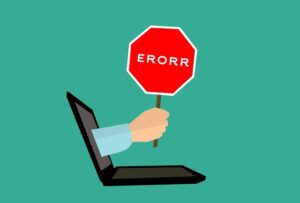Few things are as frightening as opening the mailbox and finding a letter from the IRS, especially when you know you owe them money. The much feared tax agency does not contact taxpayers just to say hello and receiving communication from them is not likely to be good news.
When your heart stops pounding and you get the courage to open the letter, you get another shock – in the form of a large amount due, one you cannot possibly afford. So, what do you do, and how do you react?
The steps you take next could make all the difference, and here are some immediate actions you need to complete right away.
Step #1 – Stop Panicking, Take Action
If you owe back taxes, our firm can help negotiate with the IRS and potentially settle your tax debt. Call us today. Our tax resolution specialists can navigate the IRS maze so that you have nothing to worry about. Get help from Ron Friedman, CPA.
If you think you don’t owe, then you need to make a case for why you think the assessed taxes are wrong and back it up with proper documentation and proof. Sometimes, the letter you received from the IRS can be a result of a discrepancy, meaning there is a mismatch between what was reported on your return and the figures the tax agency received through other means. There could be many reasons for this discrepancy, and there could be an innocent and inexpensive explanation and resolution.
Getting a letter from the IRS is not fun, but it is not the end of the world either. Even if you owe the taxes the IRS says you do, you may be able to negotiate a lower settlement, sometimes a much lower one.
Step #2 – Find the Tax Return in Question
The communication you received from the IRS will reference a specific tax year, so it is important to find and review that return as quickly as possible. Hopefully you have retained records that include your recent tax returns, either in paper or electronic form. If not, you can request a copy from the IRS or contact your tax preparer.
Once you have your tax return in hand, you can review it carefully, looking for the discrepancies in question and seeking out your own backup information. The problem could be something like a capital gain you forgot to report or a transposed number as you were entering your income information. Gather all the information and have it ready to bring to your appointment with the tax relief specialist.
Step #3 – Do Your Own Calculations
Now that you have your tax return and your backup documentation available, it is time to do some number crunching. This can be a long and frustrating process, so we guide our clients through this process when they work with us. The clock is ticking, and interest and penalties may continue to accumulate if you wait too long to respond.
There should be a deadline listed on the form you received from the IRS, so check it and make sure you can respond by the due date. Do not forget to allow time for mailing and delivery, even if you plan to send the documents overnight.
Step #4 – Don’t Contact The IRS Directly, Contact Our Tax Relief Firm And Get The Protection You Need
The IRS is not on your side and their primary goal is to collect the taxes they believe you owe. The IRS has a number of programs in place to lower the amount owed, but for obvious reasons they do not like to talk about them.
By seeking the services of a qualified tax relief firm like ours, you will gain access to a world of knowledge, including insider information about programs that could save you thousands of dollars and get you back on the good side of the IRS. The sooner you our tax relief firm the better off you will be.
Dealing with the IRS is rarely a pleasant thing to do, but ignoring a tax due notice will not make it go away. Delaying will just make a bad situation even worse, so it is important to act quickly. The good news is that tax relief firms exist for this very purpose, so you can settle your debt without sacrificing the rest of your financial life.
Contact Our Firm Today: We help people find tax relief and sometimes settle their tax debt for a fraction of what’s owed Get help from Ron Friedman, CPA.








